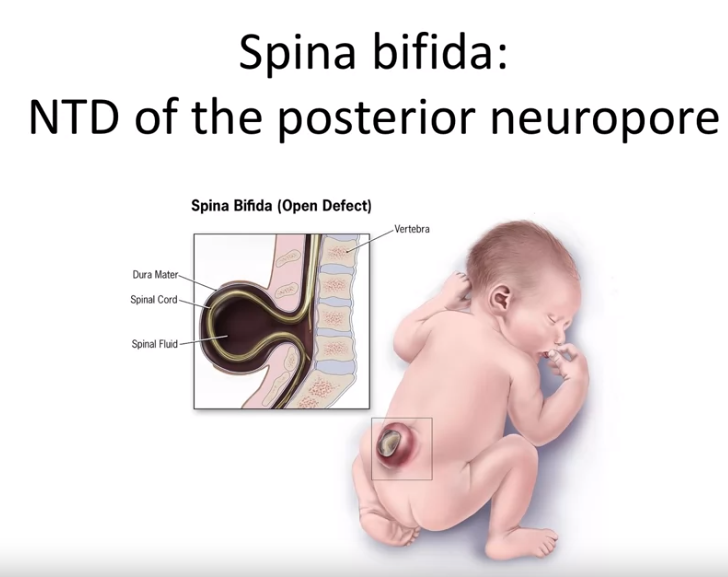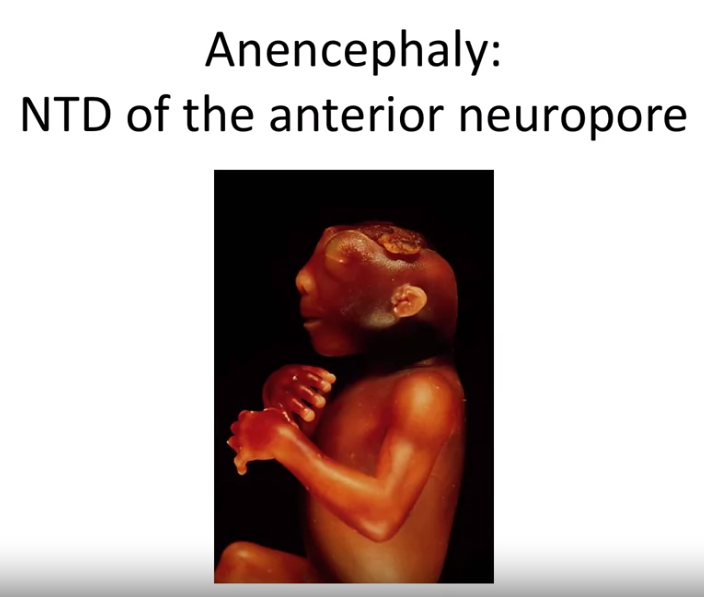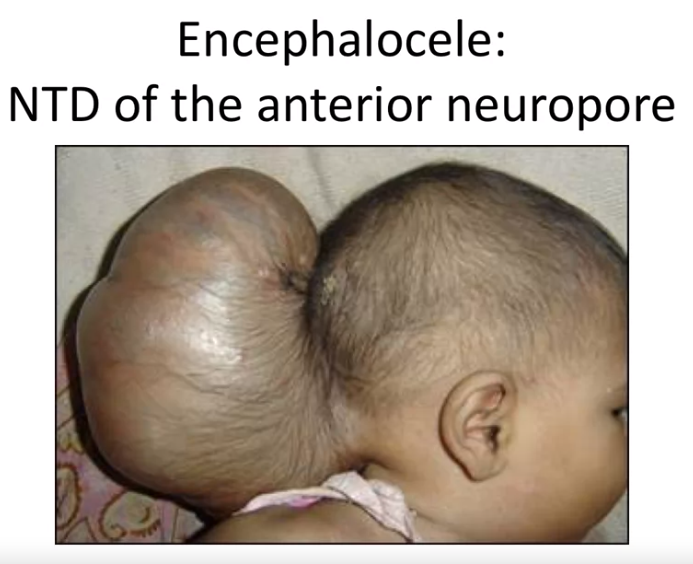Neural Tube Closure Problems
- Neural tube closure failure can lead to severe birth defects.
- Most severe defect: complete lack of closure (lethal in early pregnancy).
Two Major Neural Tube Defects
- Spina Bifida: Posterior neuropore fails to close.

- Consequences:
- Exposed spinal cord (paralysis, loss of function).
- Spinal cord pulling on brain (hydrocephalus, brain dysfunction).
- Severity varies depending on opening size.
- Treatment: Surgery (including prenatal intervention).
- Consequences:
- Anencephaly: Anterior neuropore fails to close.

- Consequences:
- Exposed brain (disintegrates over time).
- Lethal condition (most die before or shortly after birth).
 Other Neural Tube Defects
Other Neural Tube Defects
- Consequences:
- Encephalocele: Neural tube defect occurring after day 28.
- Cyst containing cerebrospinal fluid (CSF) or CSF and brain tissue.
- Prognosis depends on content (CSF has better outcome).
- Treatment: Surgery.
Preventing Neural Tube Defects
- Neural tube closure occurs in the 4th week of pregnancy (often before pregnancy is known).
- Folate supplementation of grains:
- Reduces occurrence by about 70%.
- Not effective in all cases.
- Challenges:
- Not all foods fortified with folate (e.g., gluten-free).
- Dietary habits may not provide sufficient folate intake.
Conclusion
- Neural tube defects are serious but preventable in many cases.
- Folate supplementation has significantly reduced their occurrence.
- Further research needed to address remaining cases.